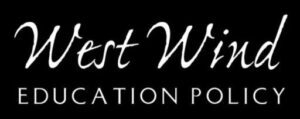[box class=”grey_box”]A needs assessment for the context of improving Arizona’s high schools, based on Regional Focus Groups on High School Renewal and prepared for the Arizona Department of Education and the Arizona High School Renewal and Improvement Initiative State Team.[/box]
Introduction
Arizona is poised to usher in exciting renewal activities in its high schools, activities that will help to ensure all students in Arizona achieve to high levels and graduate from high school ready for college, work, and success in life. A broad cross-section of school, community, and governmental leaders are looking at the performance of Arizona’s high school students and are studying ways to improve the goals, organization, and results of Arizona’s high schools.
There are many reasons why Arizonans believe high school renewal so critical. Most significant are hopes that more and more of Arizona’s high school students ultimately will graduate and that they will graduate proficient in Arizona’s content and performance standards. Only 76.4% of students starting high school in the fall of 1998 graduated by spring 2003. 33.6% of Arizona’s Hispanic students did not graduate in five years, 37% of Native American students did not graduate; and 29.8% African American did not graduate in five years. Further, there is not general consensus that each of those students who did graduate was well prepared for a competitive economy or post-secondary education.
In an effort to ensure all of Arizona’s high school students achieve to the standards, the Arizona State Legislature recently authorized an assessment and accountability system, which requires all students to pass Arizona’s Instrument for Measuring the Standards, or the AIMS test, in order to graduate. The class of 2006 is the first class that will be required to pass AIMS to graduate. In the spring 2004 administration (the first opportunity the class of 2006 had to take the test, which was when they were sophomores), 59% of that class who took AIMS without accommodations passed the reading portion, 62% passed the writing portion, and 39% passed the mathematics portion of the AIMS assessment. In the fall 2004 administration, students were retested in areas where they underperformed. 36% of the class who took the reading “retest” passed, 46% of 11th graders who took the writing retest passed, and 22% of the class who took the mathematics retest passed.
Statewide concern that all students pass the AIMS test is creating conditions for real renewal to occur in Arizona’s high schools. Arizonans across the board are eager for change—and they are ready for a legitimate group of stakeholders to provide leadership in identifying strategies for renewal that schools, school districts, and communities can join together to undertake.
To help provide that leadership, the Arizona Department of Education convened a statewide team to study the high school context in Arizona and to develop action plans for high school renewal. After their first full meeting in the summer of 2004, the State Team determined they needed to conduct a needs assessment of stakeholders from across the state in order to determine the unique Arizona context for improving high school. In response, the Arizona Department of Education and WestEd joined to organize four Regional Focus Groups on High School Renewal. The Focus Groups were held October 14 in Yuma, October 15 in Tucson, October 18 in Flagstaff, and October 19 in Phoenix. The Focus Groups were convened to advise the Arizona High School Renewal and Improvement Initiative State Team on:
- What matters most to the many diverse stakeholders unique to Arizona;
- What are the expectations for student performance within the schools and the
broader community; - What students need in order to be successful in high school;
- What ideas for renewal hold promise or are at peril; and
- How ready the schools and communities are to take on high school renewal
initiatives.
One hundred and eleven stakeholders took part in the focus groups, representing a diverse array of interests, including those of students, parents, teachers, principals, administrators, elected officials, business and industry, higher education, and middle level education; charter schools, alternative schools, and regular comprehensive high schools; and urban, suburban, and rural schools. These stakeholders joined together to advise the AZHSRI State Team on the development and implementation of action plans for high school renewal. (A listing of participants in each of the four focus groups is included as Appendix 2.)
Questions were posed to each focus group in order to elicit their priorities, analyses, and ideas. In general, focus group participants felt the process captured their comments and were satisfied the goals of the focus groups were met. (See Appendix 4 for detailed evaluative data from the focus groups.) This report will be forwarded to each participant for their individual review.
Researchers analyzed the results and prepared the following recommendations for the AZHSRII State Team and the Arizona Department of Education. The AZHSRII State Team will be meeting February 2, 2005, to review these recommendations and the various initiatives underway in Arizona around high school renewal. At that meeting, the State Team will begin to develop a series of action plans to encourage state and local improvement efforts.
It is anticipated that additional data will be gathered at focus groups in communities that were under-represented in the regional sessions. In particular, one focus group will be organized within the Native American community. There is hope that a second focus group will be convened of high school students who have either dropped out, are at risk of dropping out, or who are in alternative high school programs.
Continue reading by downloading the full PDF.
